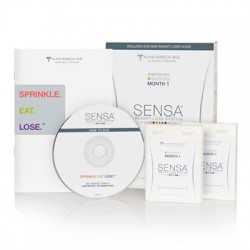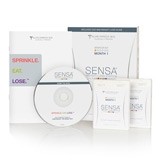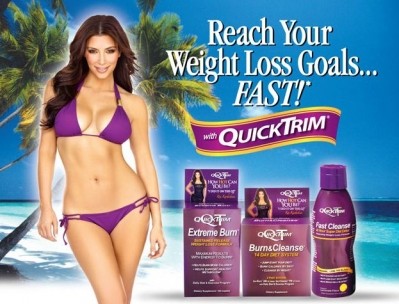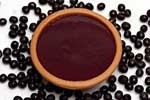Weight loss firm hit with class action lawsuit over Sensa satiety crystals claims

The class action, filed by plantiff Angie Cruz in the district court of Harris County on behalf of Texas residents that purchased Sensa in Texas, says Sensa Products mislead shoppers by falsely claiming that Sensa crystals could help them lose more than 30lbs in six months without dieting, calorie counting or changing their lifestyle.
“The defendant advertises that Sensa has been clinically proven to result in an average weight loss of 30.5lbs in just six months. This weight loss is guaranteed and requires no change in diet or exercise. The aforementioned claims… are deceptive, misleading, false and unfair to the average consumer.”
Cruz, who used Sensa as directed, “did not experience the promised benefits” and is seeking compensatory and punitive damages.
Six different patent-pending scent/flavor combinations
The scented, flavorless ‘tastant’ crystals, which contain maltodextrin, tricalcium phosphate, silica, natural and artificial flavors, soy and milk ingredients, are the brainchild of neurologist Dr Alan Hirsch, neurological director of the Smell & Taste Research and Treatment Foundation in Chicago.
According to the Sensa website, the tastants “consist of six different patent-pending scent/flavor combinations that are proven to help trigger the brain mechanism that signals when you are full”.
The firm claims Sensa is supported by two clinical trials, neither of which have been published in peer reviewed journals.
Participants reported having less appetite
In the first, conducted by Dr Hirsch, 1,436 patients (mostly women) who completed a six month study, are claimed to have lost an average of 30.5lbs, while those in the 100-person-strong control group lost only 2lbs, on average.
A second six-month study on 83 volunteers is described on the firm's website as a “double-blind, placebo-controlled study” conducted by an unnamed “independent laboratory” , in which participants lost 27.5lbs or about 14% of their body mass, on average, while those in the control group gained half a pound, on average.
“Based on individual reports, as of week six, participants reported having less appetite and acknowledged a reduction in the quantity of ingested food", claimed the firm.
In a study published in the Journal of Neurological and Orthopaedic Medicine and Surgery in 1995 entitled ‘Weight Reduction through Inhalation of Odorants’, Dr Hirsh found that “inhalation of certain aromas can induce sustained weight loss over a six-month period” in overweight subjects with good olfaction.
Subjects were given inhalers containing blends of aromatic ingredients and told to inhale three times whenever they felt hungry.
FTC is ‘very willing’ to make examples of companies making false weight loss claims
Speaking at NutraIngredients-USA’s weight management virtual conference and expo last week, the Council for Responsible Nutrition’s scientific and regulatory affairs vice president Dr Duffy MacKay said the Food and Drug Administration (FDA) and the Federal Trade Commission (FTC) had recently stepped up enforcement activities against firms making unsubstantiated claims.
“The current FTC leadership is very willing to make examples of companies that are making false and misleading weight loss claims… We’ve seen products as ridiculous as pants laced with caffeine for weight loss.”
There are no magic bullets
He added: “We all know that there are incredible ingredients out there that can help, as part of a healthy diet as well as exercise, but there are no magic bullets.
“I’m going to ask responsible advertisers once again, do not make miracle claims and do not overpromise.
"If your company decides to market weight loss products aggressively, one of my colleagues that is a lawyer in this environment always says, don’t be the lowest hanging fruit for enforcement action because you will be picked.”
Sensa Products, which was not mentioned in MacKay’s presentation, was unavailable for comment as this article went to press.
















